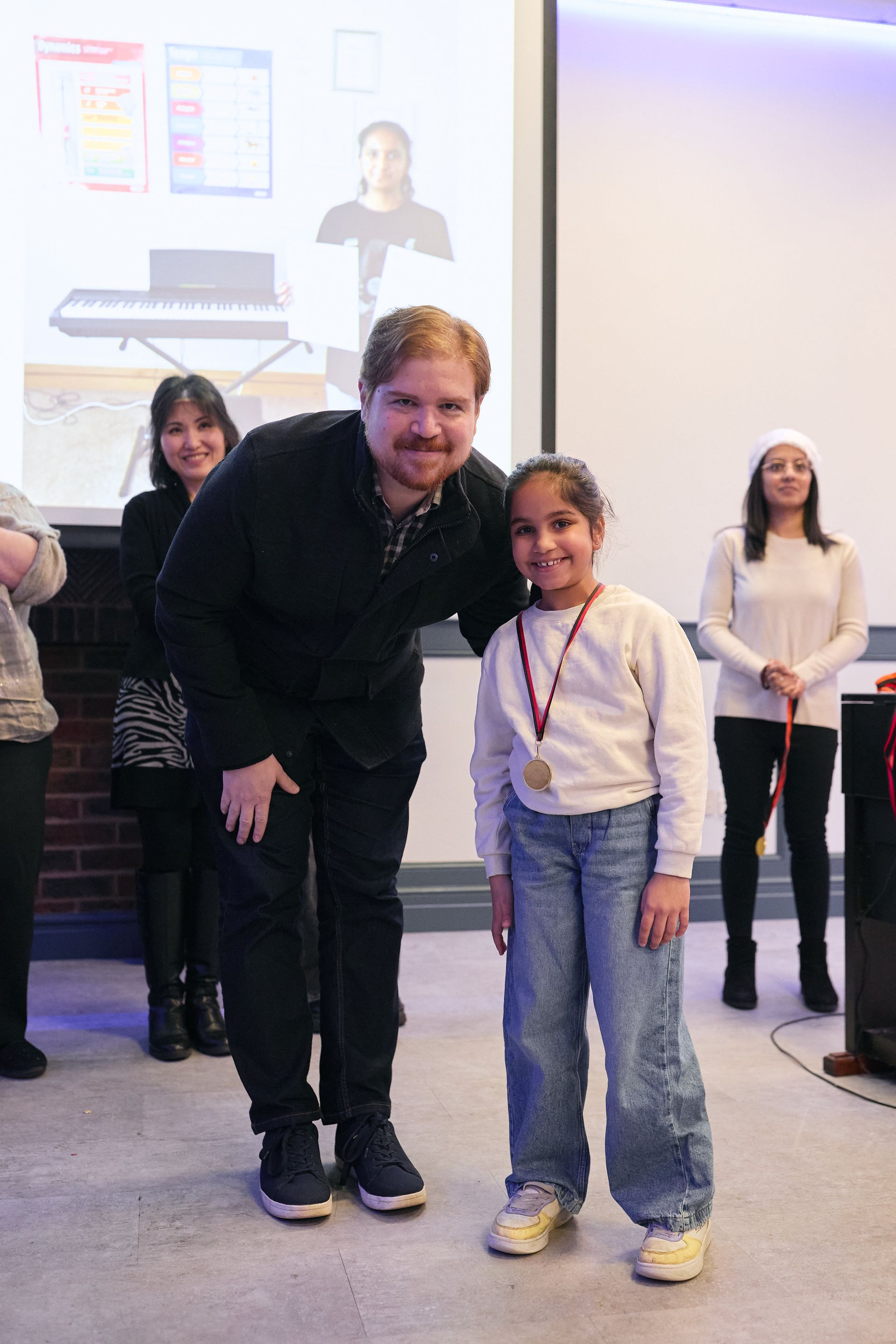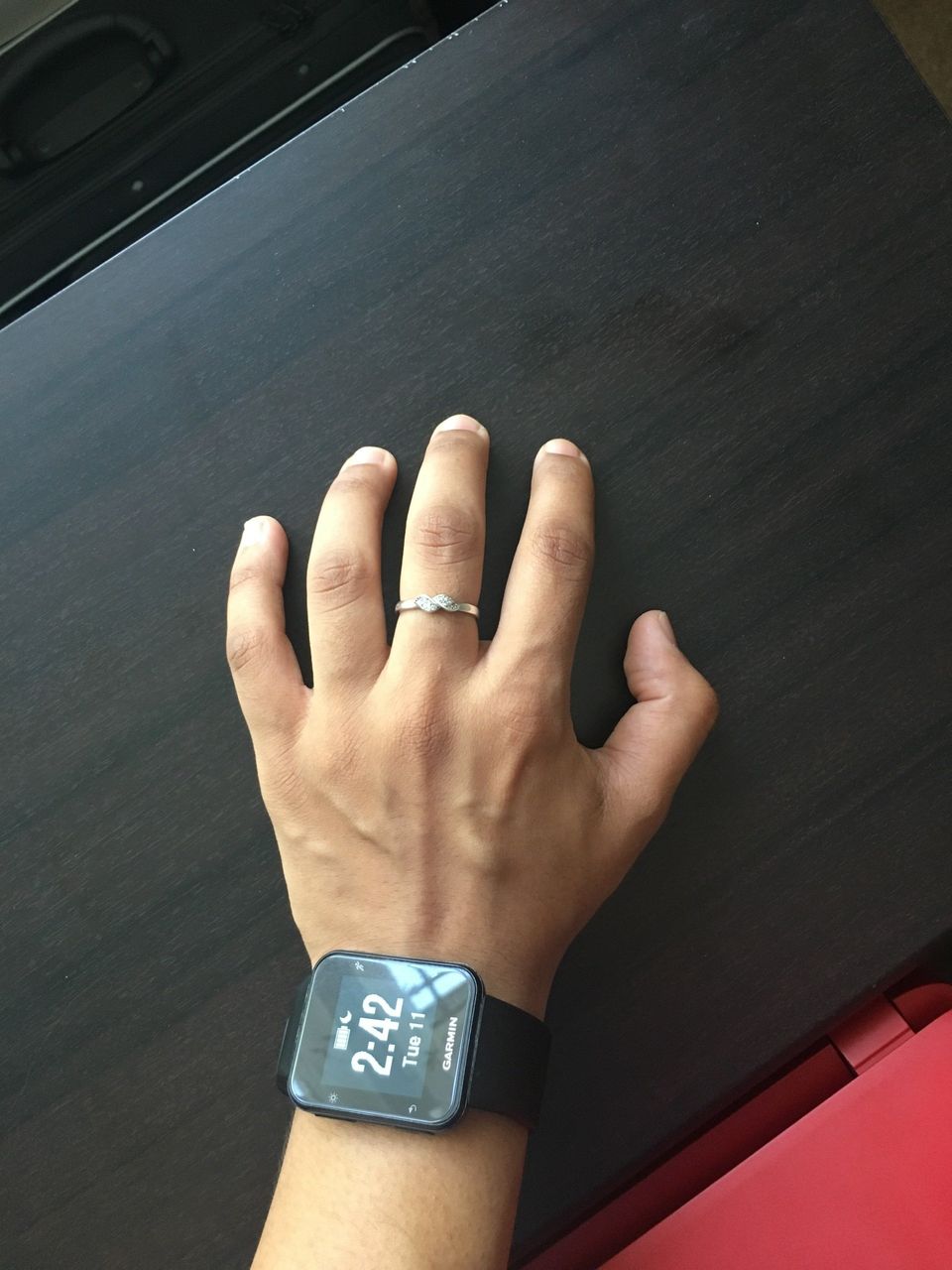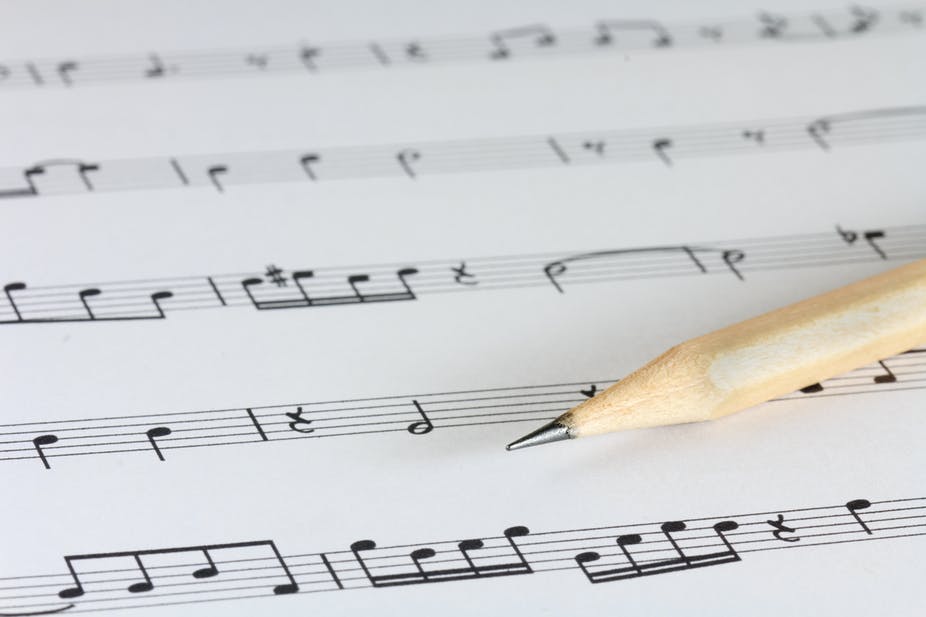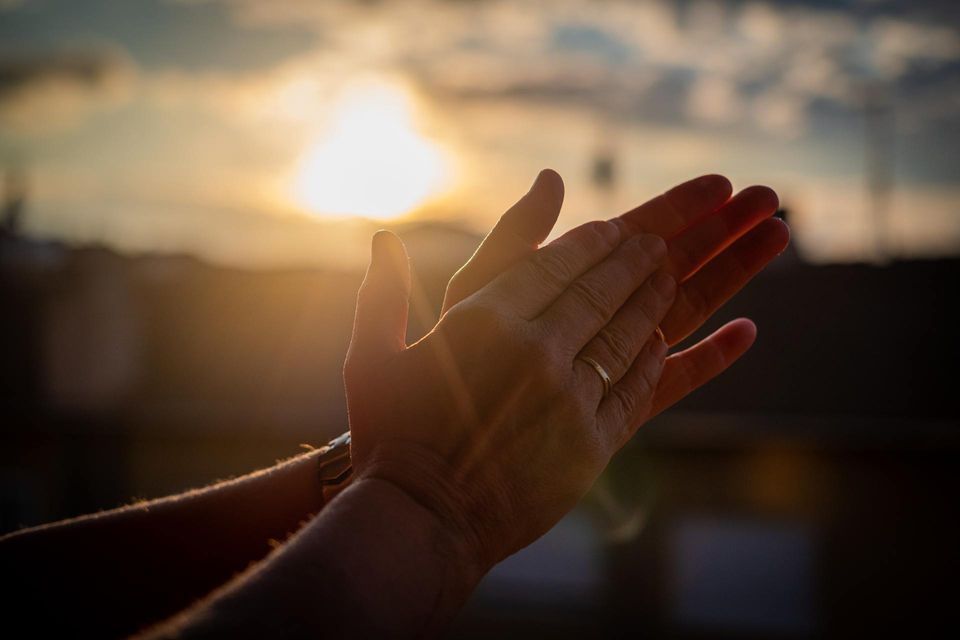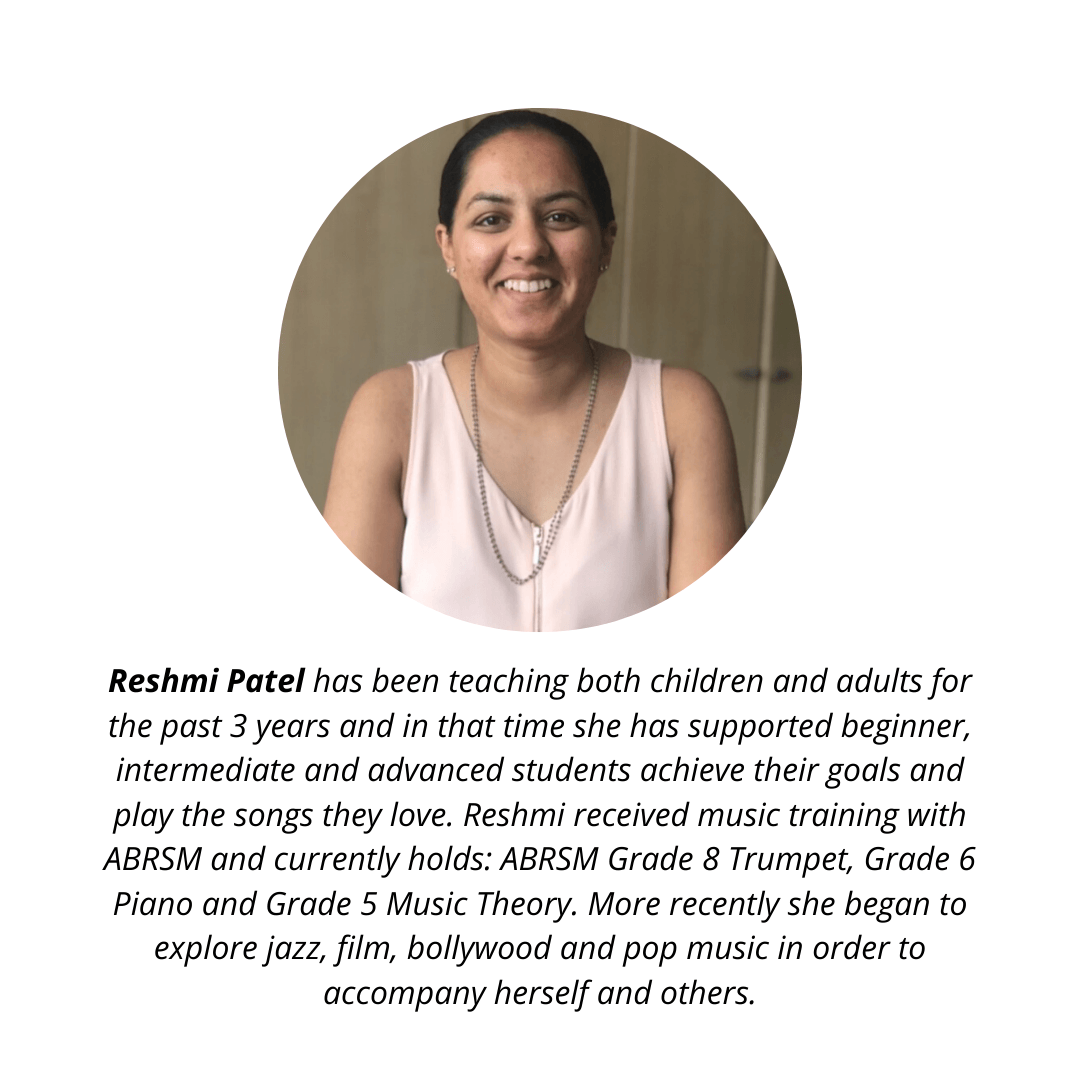Practicing Away From the Piano
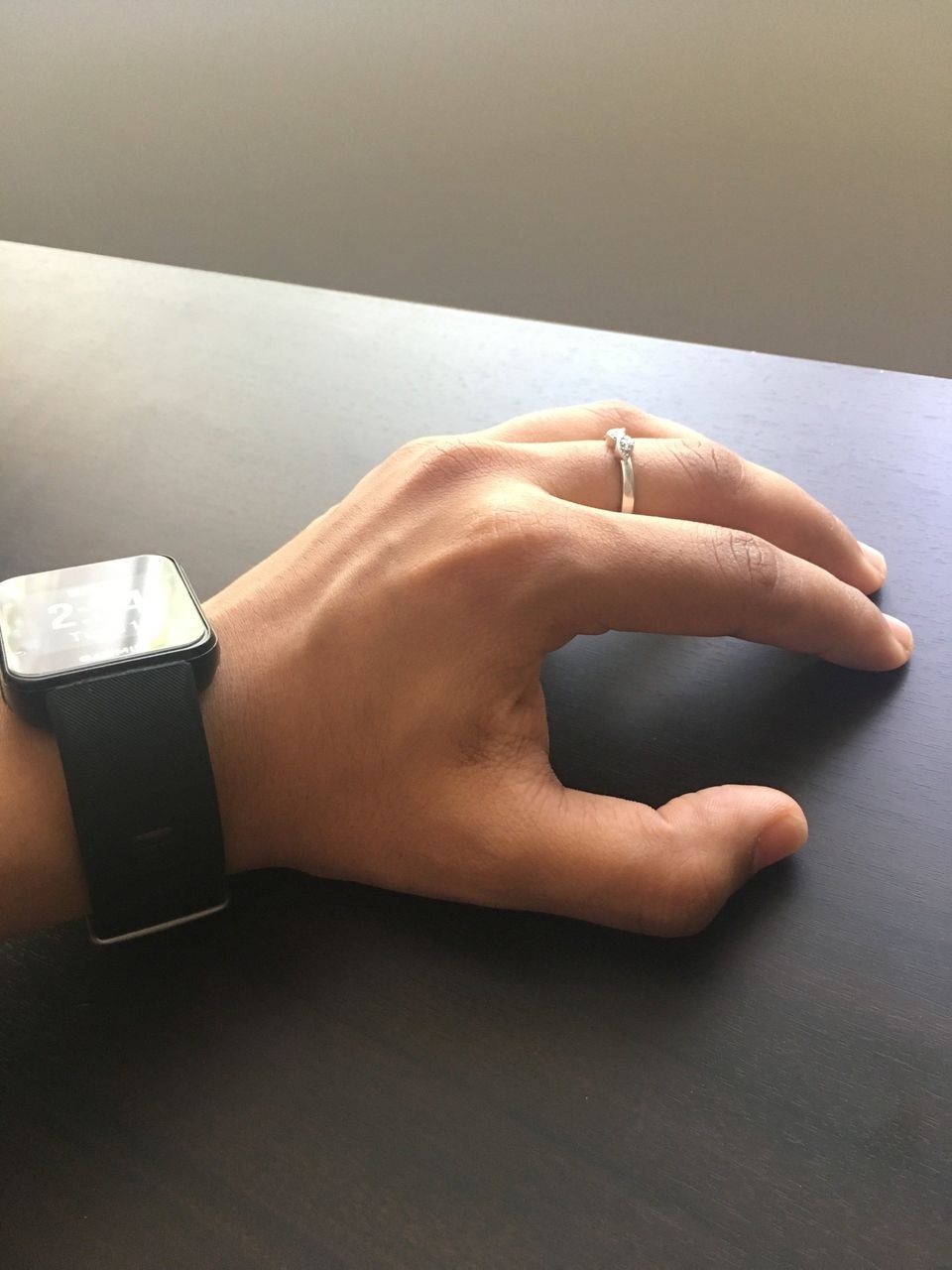
As seen in the image you can do this at your convenience on a desk at school or on your table at work.
Firstly, place your hand on the surface and ensure that your fingers are curved (as if you were shaking someone’s hand) and ensure your wrist lies flat.
Then, one at a time, lift each finger up without moving the other ones.
If this becomes too easy for you, try lifting each finger several times before moving onto the next one.
Once you’ve done this, repeat this exercise exactly the same way with your other hand.
2) Study the Score
When you are analysing your sheet music, have a look out for the following:
· Key Signature
· Accidentals
· Rhythmic variations
· Dynamic variations
· Forms of articulation
· Changes in the pitch
· Type of finger patterns
· Changes in the hand position
If you are studying a piece you have currently played on your piano, identify where you are stumbling out of time and work out why it’s going wrong, then decide how you are going to fix it.
3) Clapping or Tapping Rhythms
Music teachers tend to encourage their students to feel a sense of pulse or to focus on the sense of the rhythm in their music. One way you can do this is to find a piece of music and tap or clap the rhythm of the notes. You can either count out loud or in your head whilst you are completing this exercise. If you are struggling with either of these, try listening to a metronome before or whilst you are practicing.
Once a student or performer plays with good awareness, knowledge and understanding of this aspect of time it has a very audible effect on their interpretation of the music.
4) Visualisation
‘Visualisation’ is a technique used to form a mental image and replicate certain behaviour.
This is something top athletes and musicians do before taking part in competitions and is a powerful way to focus the mind!
Visualization is really quite simple. First, sit in a comfortable position, close your eyes and imagine — in as vivid detail as you can at the process and the final result of your desired act.
To gain the most out of visualisation try to:
· Pick the right time and place
Somewhere you can switch off and focus deeply. This should also be somewhere with as few distractions as possible.
· Focus on your breathing
Before you begin try to ensure you maintain a regular breathing pattern and release any tension in your body.
· Regain control of your attention
Focus on one thing. Whether that’s your instrument or hand position. Begin to picture this in your mind. You can then add more images as and when you feel comfortable.
· Use all of your senses
Although the term ‘visualisation’ implies using our visual senses, according to leading performance psychologists: ‘you should be so immersed in a mental image that it seems as if it is actually happening.’ For this reason, we recommend using as many senses as possible.
Remember that when you are trying out these hacks to look at them little and often but also be patient with yourself. If you wish to know more about these hacks and resources, feel free to take a look around our website or connect with us directly.


